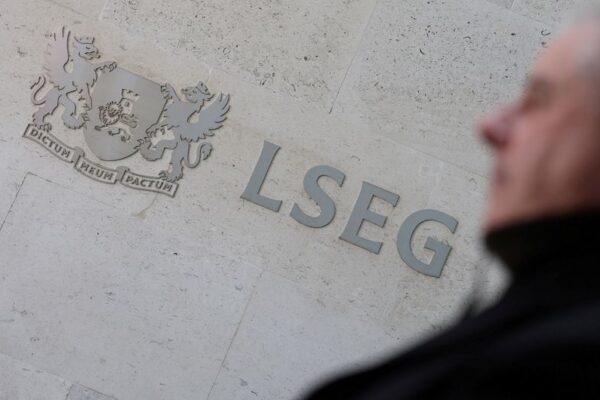Analysis: Archegos meltdown set to intensify shadow banking regulatory scrutiny

No results matched your search

 EconomyMar 30, 2021 05:41PM ET
EconomyMar 30, 2021 05:41PM ET
 © Reuters. FILE PHOTO: A person walks past 888 7th Ave, a building that reportedly houses Archegos Capital in New York City
© Reuters. FILE PHOTO: A person walks past 888 7th Ave, a building that reportedly houses Archegos Capital in New York City
By Michelle Price and Katanga Johnson
WASHINGTON (Reuters) – The implosion of New York-based Archegos Capital Management and the resulting losses for global banks is likely to intensify regulatory efforts to curtail the ballooning shadow banking sector and shed light on its risks.
Scrutiny of nonbanks was already a priority for Democratic lawmakers and Treasury Secretary Janet Yellen after hedge funds were involved in last year’s Treasury market turmoil, dislocations in the repurchase agreement market in 2019, and January’s GameStop (NYSE:) saga.
The meltdown at Archegos, run by former hedge fund manager Bill Hwang, is another strike against the lightly regulated nonbank sector, said analysts. Archegos’ soured leveraged equity bets have left big banks that financed its trades nursing at least $6 billion in losses, drawing scrutiny from watchdogs.
Despite managing around $10 billion and being leveraged to the tune of around $50 billion, according to a person with knowledge of the fund’s positions, Archegos was not directly regulated because it manages Hwang’s personal wealth as a single-family office.
On Wednesday, Yellen is leading the first meeting of the Financial Stability Oversight Council (FSOC) under the new Biden administration. The body is set to discuss hedge fund activity, among other issues, and analysts expect it will address Archegos too.
The U.S. Securities and Exchange Commission (SEC), which is a member of FSOC, has been discussing the incident with brokers to understand the impact on them and their customers, and areas of potential additional exposure, said one person with knowledge of the matter.
“The forced deleveraging of Archegos will keep the ‘gamification’ of markets a continued focus of Congress and federal financial regulators,” wrote Raymond James analysts, adding policymakers would likely push for tougher single-family office disclosure rules, among other new reforms.
After the 2009 financial crisis, Congress imposed tough rules on banks, pushing riskier activities into more lightly regulated sectors, such as asset managers and private funds, also referred to as the shadow banking sector.
In response, the FSOC began a review of the asset management industry, warning in 2016 that leveraged hedge funds could cause instability during market stress if they became forced sellers. It planned to monitor the risks and plug data gaps, but the former Trump administration shut down that project.
REGULATORY BLIND SPOT
Family offices are even more of a regulatory blind spot. Single-family offices, which invest just one family’s wealth, are not required to register with the SEC and therefore, unlike hedge funds, do not have to disclose their assets, bank relationships and other operational information.
While FSOC’s 2020 annual report found net U.S. hedge fund assets were $2.9 trillion – $6.3 trillion in gross assets when accounting for leverage – it gave no data on family office assets.
Several market participants were surprised that Hwang could have quietly amassed so much leverage with so little oversight.
“The markets had no idea how big the (Archegos) positions were, in what stocks, how much was going to be sold, who owned it, what the leverage was,” Dennis Kelleher, CEO of Washington think tank Better Markets, wrote in a note.
“That’s because the shadow banking system remains non-transparent in material respects and much larger than it was in 2008.”
Advisory group Campden Wealth reported in 2019 that the number of family offices globally had risen 38% over the previous two years, with total assets valued at $5.9 trillion. Consultancy EY recently estimated that global family-office capital had outstripped private equity and venture capital combined.
In the United States, light-touch regulation has made family offices attractive to hedge fund managers keen to shed outside investors and many, including several industry stars, have converted to family offices over the past decade.
Hwang converted his hedge fund Tiger Asia Management into a single-family office after the SEC fined him and the fund in 2012 for breaching its trading rules.
Kelleher said he expected a review of the U.S. rules on family office and hedge fund disclosures, as well as of broker risk management and the types of derivatives Hwang used to create leverage.
“Biden administration regulators need to act swiftly and comprehensively to protect our financial system,” he added.
Related Articles
Disclaimer: Fusion Media would like to remind you that the data contained in this website is not necessarily real-time nor accurate. All CFDs (stocks, indexes, futures) and Forex prices are not provided by exchanges but rather by market makers, and so prices may not be accurate and may differ from the actual market price, meaning prices are indicative and not appropriate for trading purposes. Therefore Fusion Media doesn`t bear any responsibility for any trading losses you might incur as a result of using this data.
Fusion Media or anyone involved with Fusion Media will not accept any liability for loss or damage as a result of reliance on the information including data, quotes, charts and buy/sell signals contained within this website. Please be fully informed regarding the risks and costs associated with trading the financial markets, it is one of the riskiest investment forms possible.












 Bitcoin
Bitcoin  Ethereum
Ethereum  Tether
Tether  XRP
XRP  USDC
USDC  Solana
Solana  TRON
TRON  Dogecoin
Dogecoin  Lido Staked Ether
Lido Staked Ether